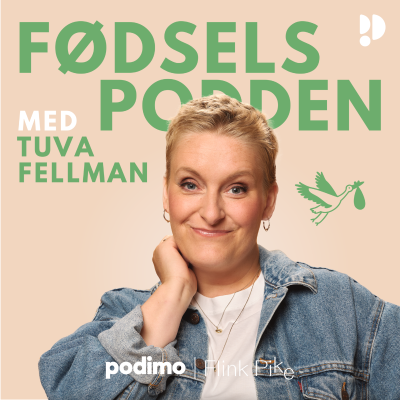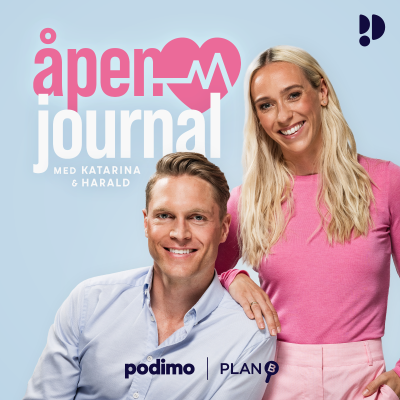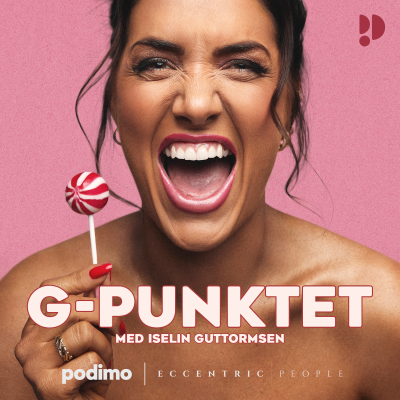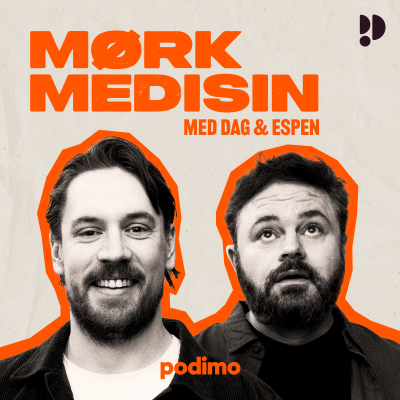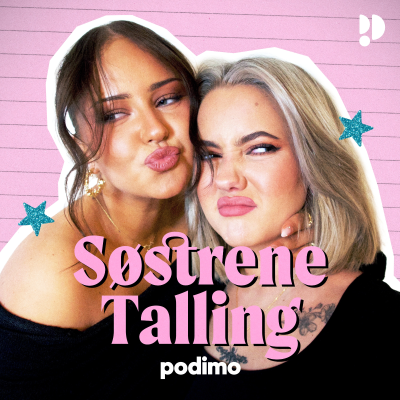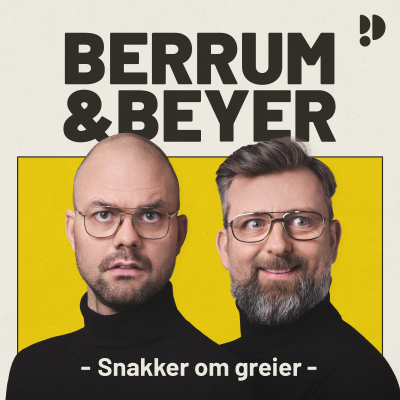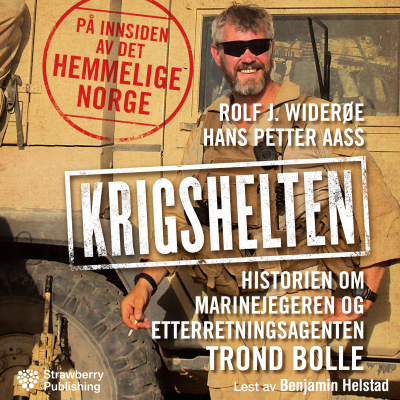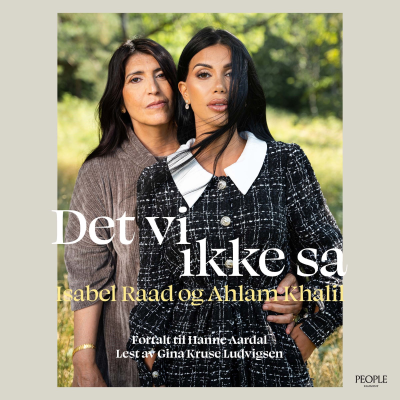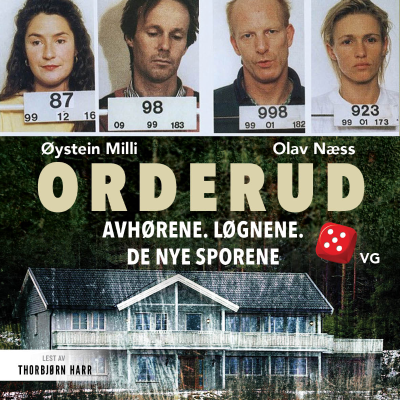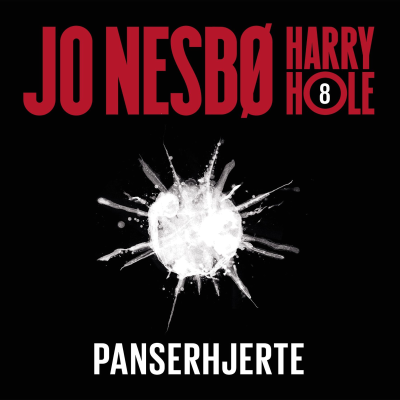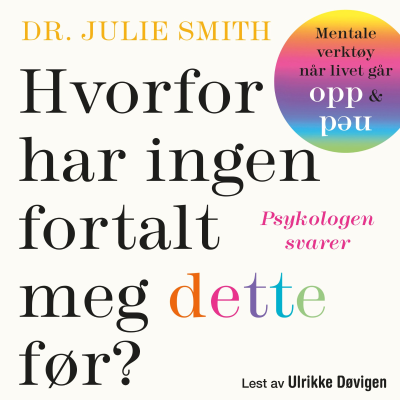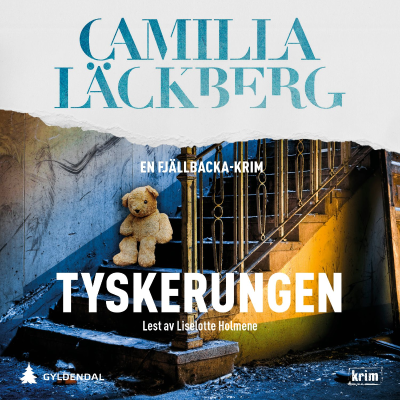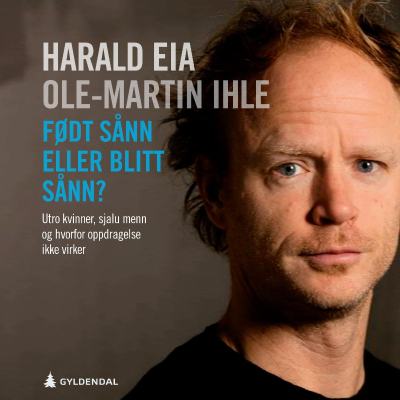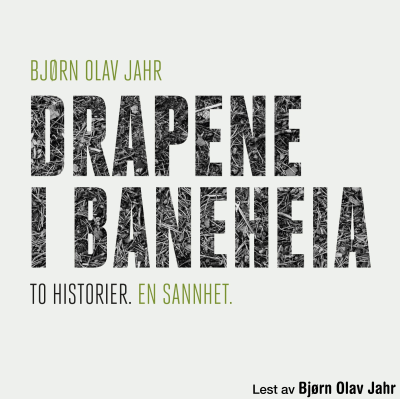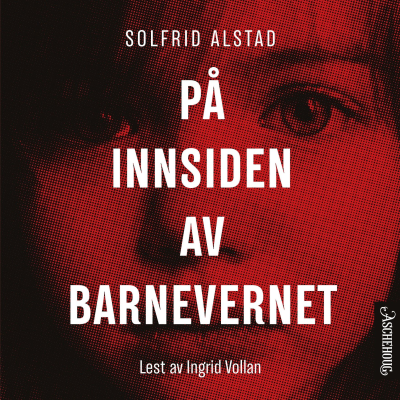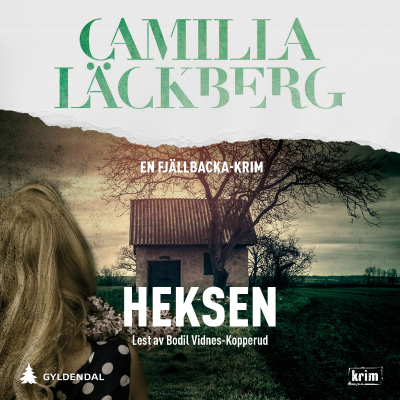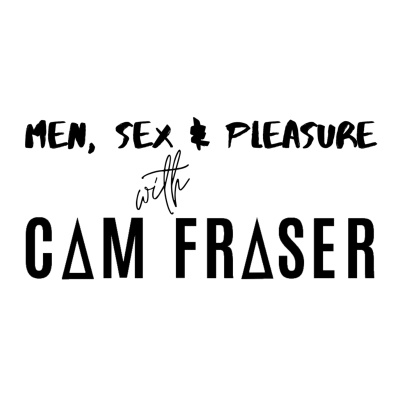
Men, Sex & Pleasure with Cam Fraser
Podkast av Cam Fraser
Prøv gratis i 14 dager
99 kr / Måned etter prøveperioden.Avslutt når som helst.
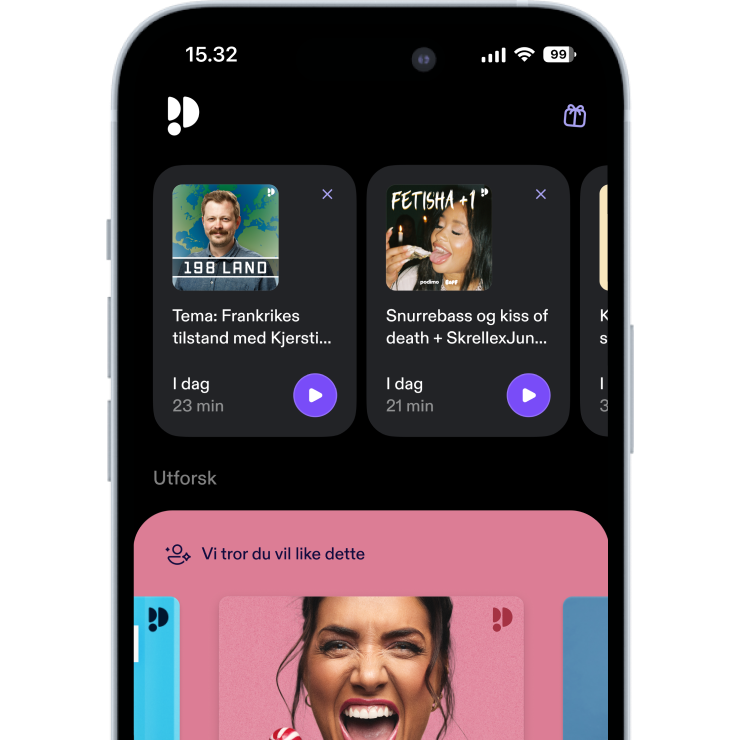
Mer enn 1 million lyttere
Du vil elske Podimo, og du er ikke alene
Rated 4.7 in the App Store
Les mer Men, Sex & Pleasure with Cam Fraser
The intention with this podcast is to platform people who perhaps haven't been part of the discourse around masculinity and sexuality in the mainstream, spiritual, Tantra and sacred sexuality communities. From sex workers, male strippers, and relationship coaches to psychosexual therapists, transgender educators and indigenous men. "Men, Sex, and Pleasure" is a podcast discussing all things masculinity, sexuality, male bodies and men's experience of pleasure.
Alle episoder
345 EpisoderOn this episode of #mensexpleasure, I chat with Pierre Fleury, a violence prevention educator who specializes in domestic and dating violence, with a strong focus on engaging young men in conversations about healthy relationships and gender-based violence. Pierre shares his personal and professional insights into how rigid ideas of masculinity—what he calls the “man box”—contribute to harmful behaviors like aggression, emotional suppression, and the misuse of relationships for status. We explore the resistance many young men show toward this work, the appeal of red-pill rhetoric online, and why it’s critical to meet boys where they are with diverse, relatable messengers. Pierre offers practical strategies for educators, parents, and influencers to promote positive, respectful masculinity in both offline spaces and algorithm-driven online worlds. Key Points: Introductions and background Pierre Fleury introduced himself as a violence prevention educator who specializes in domestic and dating violence, particularly intimate partner violence. He shared that much of his work involves educating young people on healthy relationships and engaging men to prevent gender-based violence. Unpacking masculinity and the "man box" Cam and Pierre discussed their personal experiences with the rigid cultural scripts around masculinity, and how they have both grappled with the pressure to conform to certain masculine ideals. They explored how this can lead to harmful behaviors like bullying and aggression as a means of maintaining one's status in the masculine hierarchy. Challenges in educating young men Pierre described the common resistance he encounters when working with young men, who often want to know how the new messaging will help them attract romantic partners. He emphasized the importance of shifting the mindset away from using relationships as a reward, and instead focusing on becoming a genuine, healthy person. The need for diverse messengers Cam and Pierre discussed the value of having a variety of messengers, both male and female, to reach young men with messages about healthy masculinity. They acknowledged that some boys may be more receptive to certain messengers over others based on factors like age, background, and shared interests. The prevalence and spread of harmful masculinity rhetoric Pierre observed that the "red pill" ideology and other harmful masculinity messaging is not new, but has become more widespread and accessible online, often being subtly woven into various types of content. He highlighted how the algorithms of social media platforms can contribute to the proliferation of this rhetoric. Strategies for promoting positive masculinity Cam and Pierre discussed ways to leverage social media algorithms to amplify more constructive messaging around masculinity, such as parents being mindful of their children's online content and influencers using thoughtful hashtags. They also emphasized the importance of creating supportive communities for young men to explore new ways of being. Relevant links: Pierre Fleury's TikTok: https://www.tiktok.com/@pierrefleury_?
On this episode of #mensexpleasure, I chat with Michael Brasher, a passionate men's work facilitator and community organizer. Michael’s journey began while working at a domestic violence shelter, where his exposure to a men’s education program transformed his understanding of masculinity and violence. Since then, he has devoted his life to violence prevention and creating spaces for men to heal, grow, and reconnect with their emotional lives. Michael shares insights from years of running men’s groups, talking circles, and rites of passage experiences for men and boys. We explore the challenges of engaging men in vulnerability, the harmful impacts of traditional masculine norms, and the importance of bridging personal healing with community action. Michael’s work is grounded in compassion, connection, and a vision of masculinity rooted in care and accountability. Key Points: Michael's background and passion for men's work Michael shares his personal story of how working at a domestic violence shelter and going through a men's education program changed his life and set him on a path to devote himself to violence prevention and community organizing to help men understand and heal from the violence they've been incentivized into. Challenges of engaging men in this work Michael discusses how men are often resistant to this type of work, but explains that if the right space and conversation is created, men will open up and be vulnerable. He shares examples of successfully facilitating men's groups and workshops, even with populations like fraternities that are often seen as resistant. The socialization of masculinity and its impacts Michael and Cam explore how traditional masculine norms and expectations are deeply harmful, leading men to disconnect from their emotions and pain. They discuss how this socialization perpetuates cycles of violence and trauma that get passed down generationally. Creating spaces for men to heal and grow Michael describes the importance of creating spaces for men to be vulnerable, share their pain, and reimagine healthier versions of masculinity. He shares examples of programs he's run, like weekly talking circles and wilderness rites of passage trips for boys and men. Bridging individual healing and community action Cam and Michael discuss the need to move beyond just individual healing work and into collective action and community organizing to dismantle the systemic issues underlying toxic masculinity. They explore ideas like volunteering at community centers, leading group trips, and building intergenerational relationships. Overcoming resistance and criticism They acknowledge the challenges of facing criticism and resistance, especially around perceptions of men working with boys. They emphasize the importance of being grounded in one's community and values, and not letting fear of judgment prevent doing important work. Michael's ongoing programs and resources Michael shares information about his ongoing work, including his social media presence, monthly men's talking circles, and upcoming book club discussions - all aimed at providing spaces for men to heal, grow, and build healthier relationships. Relevant links: Website: https://www.lifeunboundcoaching.com/ Instagram: @lifeunboundcoaching
On this episode of #mensexpleasure, I chat with Elle Thielke. Elle is a Melbourne-based sexologist and former sex worker with a passion for men’s health and wellbeing. Drawing on her lived experience in the industry, Elle brings a unique and deeply informed perspective to conversations around masculinity, porn, and authentic sexual expression. Together, we explore the barriers that prevent men from being open about their desires, the impact of shame and gendered socialisation, and how to reframe common narratives around porn “addiction.” Elle also shares insights on ethical and embodied porn consumption, the importance of media literacy, and the urgent need for comprehensive, sex-positive education that reflects real-world experiences. Key Points: Introductions and backgrounds Elle Thielke introduces herself as a sexologist from Melbourne with a background as a former worker. She is passionate about men's health and wellbeing, and has gained deep insights from her experiences working in the industry. Cam Fraser shares his own personal journey and interest in masculinity and function, noting the lack of support many men feel comfortable seeking. Barriers to authenticity for men Elle and Cam discuss the significant barriers men face in being authentic about their , stemming from societal expectations and stigma around masculinity and expression. They explore how gendered socialization, shame, and rigid notions of what it means to be a "real man" create major obstacles for men to explore and understand their . Practical tips for ethical, embodied consumption Cam shares his approach of encouraging clients to engage with in a more intentional, embodied way - maximizing the content, minimizing distractions, and tuning into physical sensations. Elle reinforces the importance of media literacy and understanding the production realities behind pornographic content. Reframing " addiction" and compulsive behaviors Elle and Cam unpack the complex and often misunderstood concepts of " addiction" and compulsive behaviors. They highlight how the language and framing around these issues can be problematic, and emphasize the need for a more nuanced, individualized understanding of people's relationships with and . The need for comprehensive education Elle emphasizes the critical need for comprehensive, -positive education that is developed and delivered by those with direct experience and expertise in . She highlights how current approaches often fail to address the nuanced messages and implications of media and , leaving many people with unrealistic or unhealthy understandings. Relevant Links Website: www.elletsexology.com Instagram: @inthenaughtycorner
On this episode of #mensexpleasure, I chat with Dr. Giselle Woodley. Giselle is a recent PhD graduate and researcher whose work focuses on young people’s perspectives on relationships, sex education, and online harms such as image-based abuse and sextortion. Her research centers youth voices and aims to develop youth-led strategies for navigating digital sexuality and relationships. In our conversation, Giselle shares the nuanced and often-overlooked views that teens hold about pornography, including their desire for ethical, educational content and their frustration with risk-heavy, adult-led education. We also explore the implications of censorship, the importance of listening to young people, and how we can reimagine sex ed to be more inclusive, practical, and pleasure-focused. Key Points: Giselle's background and research focus Giselle introduced herself as Dr. Giselle Woodley, a recent PhD graduate who has been researching teens' perspectives on relationships, education, and online harms like image-based abuse and sextortion. Her work aims to center youth voices and develop youth-led strategies in these areas. Teens' nuanced views on Giselle found that teens have diverse and nuanced views on , rather than simply seeing it as all good or all bad. Many felt adults exaggerate the harms of , while acknowledging potential risks. Teens valued for providing information and education about and relationships that they couldn't get elsewhere. Challenges of adult-led ed Teens expressed frustration with the risk-focused, adult-led approach to education, feeling it didn't adequately prepare them for real-world and relationship experiences. They wanted more positive, comprehensive, and skills-based education, including information they could only find in . Teens' desire for ethical Many teens were interested in finding ethical, educational, and relationship-positive pornographic content, but faced barriers like not having access to payment methods or feeling unsure of where to find such content online. They saw a need for more resources in this area. Concerns about censorship and regulation Teens were skeptical of censorship and age verification measures, feeling they would just drive them to use more unregulated online platforms. They saw these approaches as ineffective and potentially making prohibited content more alluring. Recap and future collaboration Giselle and Cam discussed opportunities for further collaboration, including potentially connecting Cam with other researchers in this space like Siobhan Healy Cullen. They agreed the conversation was valuable and looked forward to continuing the dialogue. Relevant link: Giselle Woodley - https://www.ecu.edu.au/schools/arts-and-humanities/staff/profiles/communication-and-culture/ms-giselle-woodley
Key Points: Introductions and background Marc Zen introduces himself as a PhD candidate at Curtin University researching explicit media literacy education, particularly focusing on parent perspectives. He discusses his personal experiences with education growing up and how that motivated his research interests. Defining "explicit media literacy" Marc explains why he uses the broader term "explicit media literacy" rather than just focusing on . He notes that parents were more concerned about the influence of media on their children's future relationships than just the content of itself. Parent perspectives on media influence The parents Marc interviewed expressed a range of views, but were generally most concerned about how the media their children consume could negatively impact their future relationships and ability to have healthy, respectful intimacy. Some saw potential benefits in using media to start conversations. Initiating conversations with children Many parents struggled with how to initiate conversations with their children about and relationships, often resorting to awkward tactics like having the conversation in the car. Marc and Cam discuss strategies for parents to create a safe, open environment for these discussions. Differences in parent and gender perspectives Marc observed differences in how mothers and fathers approached the topic, with fathers more likely to discuss directly and share their own experiences, while mothers were more concerned about media messages promoting unhealthy relationship dynamics. Framing education in schools Marc discusses the debate around taking a "critical" approach versus a more "neutral" approach to teaching explicit media literacy in schools. He believes the neutral approach focused on building practical skills is more effective, though the critical approach is better than nothing. Concluding thoughts Marc emphasizes the importance of reframing adolescence as a time of opportunity to build valuable life skills, rather than just a period of risk and vulnerability. He advocates for evidence-based, shame-free education that provides young people with practical tools. Relevant linksWebsite: www.marczen.com.au. Instagram: marc_zen_

Rated 4.7 in the App Store
Prøv gratis i 14 dager
99 kr / Måned etter prøveperioden.Avslutt når som helst.
Eksklusive podkaster
Uten reklame
Gratis podkaster
Lydbøker
20 timer i måneden
